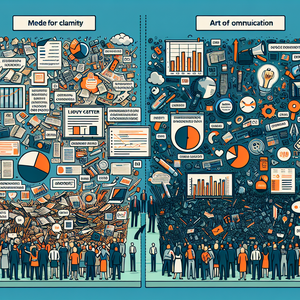The Future of Fitness: Job Opportunities in Wearable Tech

The global market for wearable technology is projected to experience exponential growth, driven by consumer demand for health monitoring and fitness tracking. According to a report by Fortune Business Insights, the wearable technology market is expected to reach $60 billion by 2025. This growth can be attributed to increasing awareness of personal health, advancements in sensor technology, and a growing emphasis on preventive healthcare. Devices such as smartwatches and fitness trackers are becoming integral to health management, providing users with valuable data that encourages healthier lifestyles. The integration of artificial intelligence (AI) and machine learning into these devices further enhances their capabilities, allowing for more personalized health insights. As the trend of personalized health continues, the demand for skilled professionals to design, develop, and market these technologies is set to rise.
Emerging Job Opportunities
With companies continually innovating, there is a high demand for roles in product development and design. Professionals in this field focus on creating user-friendly devices that meet consumer needs and preferences. Skills in industrial design, user experience (UX) design, and a solid understanding of health metrics are crucial for success. For instance, design engineers may work on enhancing the comfort and functionality of fitness trackers, ensuring they fit seamlessly into users' daily lives.
Data Analysis and Data Science
Wearable devices generate massive amounts of data, making data analysts and data scientists essential for interpreting this information. These professionals derive insights from the data and suggest improvements for product performance. Proficiency in statistical analysis, machine learning, and programming languages such as Python or R is increasingly sought after. For example, analysts may use data to identify trends in user behavior, helping companies refine their marketing strategies.
Health Coaching and Wellness Consulting
As wearable technology provides users with health data, there is a growing need for health coaches who can interpret this information and guide individuals on their fitness journeys. Professionals with backgrounds in nutrition, exercise science, or psychology can leverage their expertise to help clients achieve their health goals through personalized coaching. For instance, a health coach might utilize data from a fitness tracker to tailor a customized workout plan, increasing client engagement and results.
Marketing and Sales
The competitive landscape of wearable technology requires robust marketing strategies to capture consumer interest. Professionals in marketing and sales must understand their product's unique features and how it benefits users. Skills in digital marketing, brand management, and consumer behavior analysis are essential for those entering this field. For example, marketing specialists may create targeted campaigns emphasizing how a wearable device can enhance users' fitness experiences.
Regulatory Affairs and Compliance
As wearables become more integrated into healthcare, understanding regulatory requirements becomes critical. Professionals in this area ensure that products comply with health regulations and standards. Knowledge of FDA regulations and the ability to navigate the complex landscape of health compliance are vital for success. For example, compliance officers may work closely with engineering teams to ensure that new devices meet safety standards before launch.
Skills to Thrive in Wearable Tech
To excel in the wearable tech industry, professionals should focus on developing a mix of technical and soft skills.
Technical Skills
Familiarity with coding languages such as Java, C++, or Swift is beneficial for those looking to work on the development side of wearable technology. Skills in data collection, processing, and analysis are crucial, especially for roles that involve interpreting data from wearable devices. Understanding how users interact with technology is essential for creating engaging and effective wearable devices.
Soft Skills
The ability to convey complex data and technology concepts to non-technical stakeholders is essential. As technology evolves, professionals must be able to adapt and find innovative solutions to new challenges. Working effectively in cross-functional teams is crucial for product development and marketing efforts.
The future of fitness is undeniably intertwined with wearable technology, presenting a wealth of job opportunities for those passionate about health and innovation. As the market for wearable devices continues to expand, the demand for skilled professionals will only increase. By focusing on developing the necessary technical and soft skills, aspiring individuals can position themselves to thrive in this exciting and rapidly evolving industry. Whether in product development, data analysis, health coaching, or regulatory affairs, the opportunities in wearable tech are as diverse as the technology itself. For those looking to enter this field, networking on platforms like LinkedIn can be invaluable. Connecting with professionals already in the industry, exploring job titles such as "Wearable Technology Designer," "Health Data Analyst," or "Fitness Tech Marketing Specialist," and engaging with companies leading the charge in wearable innovation can significantly enhance job prospects. The future of fitness is bright, and the wearable tech sector is poised to play a leading role in shaping how we approach health and wellness.
Wearable Technology Designer
Fitbit, Apple, Garmin
Core Responsibilities
Design and prototype user-friendly wearable devices that prioritize functionality and aesthetics.
Conduct user research to gather feedback and iterate on product designs.
Collaborate with engineering teams to ensure designs are feasible for manufacturing.
Required Skills
Proficiency in CAD software and 3D modeling tools (e.g., SolidWorks, AutoCAD).
Strong understanding of ergonomics and user experience design principles.
Experience in consumer electronics or health tech design.
Health Data Analyst
WHOOP, Oura, Microsoft Health
Core Responsibilities
Analyze data generated by wearable devices to identify trends in user health and behavior.
Create reports and visualizations that communicate findings to stakeholders.
Collaborate with product teams to recommend data-driven improvements to device features.
Required Skills
Expertise in statistical software (e.g., R, Python) and data visualization tools (e.g., Tableau).
Strong analytical thinking and problem-solving abilities.
Experience handling large datasets and familiarity with health-related metrics.
Fitness Technology Health Coach
Noom, Peloton, local wellness centers
Core Responsibilities
Utilize data from wearable devices to create personalized fitness and wellness plans for clients.
Provide ongoing support and motivation to clients to achieve their health goals.
Educate clients on interpreting their health data and making informed lifestyle choices.
Required Skills
Certification in health coaching, personal training, or nutrition.
Excellent interpersonal and communication skills to build rapport with clients.
Knowledge of fitness technology and how to leverage it for client success.
Digital Marketing Specialist in Wearable Tech
Fitbit, Jawbone, Samsung Health
Core Responsibilities
Develop and execute digital marketing campaigns that promote wearable health devices.
Analyze consumer behavior and market trends to inform marketing strategies.
Collaborate with product teams to highlight unique features of wearable devices in marketing materials.
Required Skills
Proficiency in SEO, SEM, and social media marketing.
Strong analytical skills to measure campaign effectiveness and ROI.
Experience with content creation and brand storytelling.
Regulatory Compliance Specialist for Health Devices
Philips Healthcare, Medtronic, Abbott Laboratories
Core Responsibilities
Ensure that wearable health devices meet regulatory standards set by authorities like the FDA.
Prepare and submit necessary documentation for product approvals.
Collaborate with engineering and product teams to implement compliance measures throughout the development process.
Required Skills
In-depth knowledge of FDA regulations and quality assurance processes in health tech.
Strong attention to detail and organizational skills.
Experience in risk assessment and management related to health products.


